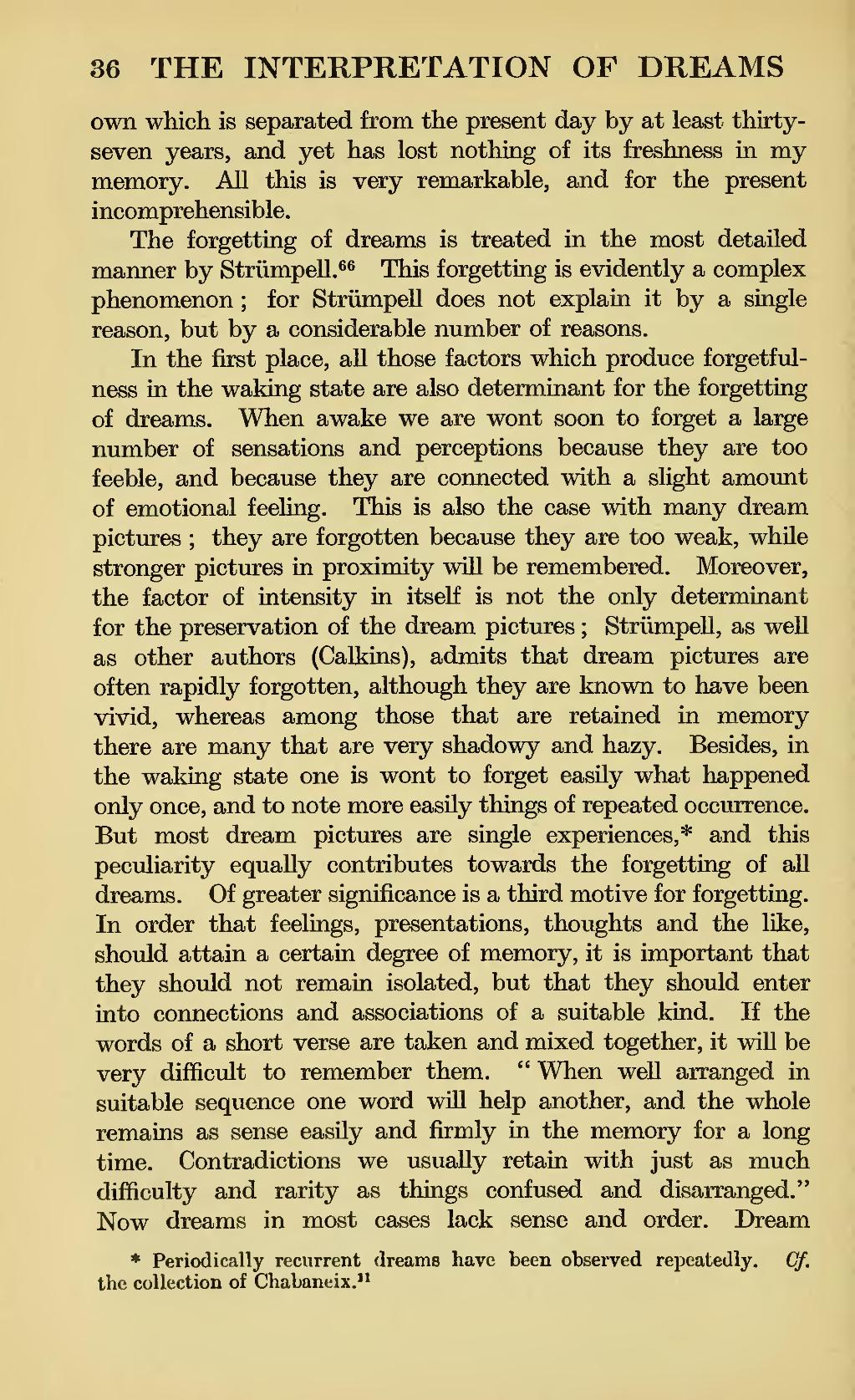own which is separated from the present day by at least thirty-seven years, and yet has lost nothing of its freshness in my memory. All this is very remarkable, and for the present incomprehensible.
The forgetting of dreams is treated in the most detailed manner by Strümpell.66 This forgetting is evidently a complex phenomenon; for Strümpell does not explain it by a single reason, but by a considerable number of reasons.
In the first place, all those factors which produce forgetfulness in the waking state are also determinant for the forgetting of dreams. When awake we are wont soon to forget a large number of sensations and perceptions because they are too feeble, and because they are connected with a slight amount of emotional feeling. This is also the case with many dream pictures; they are forgotten because they are too weak, while stronger pictures in proximity will be remembered. Moreover, the factor of intensity in itself is not the only determinant for the preservation of the dream pictures; Strümpell, as well as other authors (Calkins), admits that dream pictures are often rapidly forgotten, although they are known to have been vivid, whereas among those that are retained in memory there are many that are very shadowy and hazy. Besides, in the waking state one is wont to forget easily what happened only once, and to note more easily things of repeated occurrence. But most dream pictures are single experiences,[1] and this peculiarity equally contributes towards the forgetting of all dreams. Of greater significance is a third motive for forgetting. In order that feelings, presentations, thoughts and the like, should attain a certain degree of memory, it is important that they should not remain isolated, but that they should enter into connections and associations of a suitable kind. If the words of a short verse are taken and mixed together, it will be very difficult to remember them. "When well arranged in suitable sequence one word will help another, and the whole remains as sense easily and firmly in the memory for a long time. Contradictions we usually retain with just as much difficulty and rarity as things confused and disarranged." Now dreams in most cases lack sense and order. Dream
